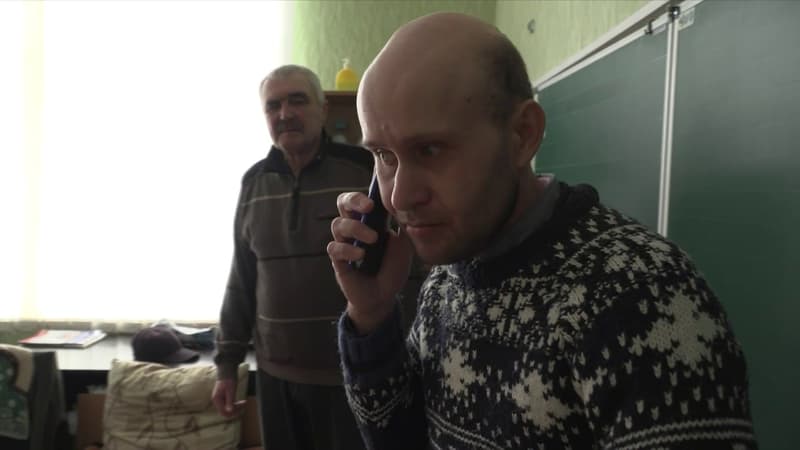Taking refuge a hundred kilometers from Kherson, Oleksandr is consumed with anguish. The phone of his mother, who stayed in this southern Ukrainian city that kyiv hopes to recover soon from Russian soldiers, is not answered.
“The last time it was connected was on October 22, we are on the 25th. It sounds empty,” laments this man, who was a metro controller in peacetime. “Our last phone call was at 9 p.m. We could hear the sound of the missiles, their walls and windows were shaking.”
“The Russians are trying to jam communications!”
While Kyiv launched a counteroffensive – so far successful – against the Russian army in the east of the country at the end of the summer, the city of Kherson is the object of all eyes. Annexed by Moscow at the start of the invasion, the idea of its return to Kyiv is increasingly likely. On Saturday, pro-Russian forces in the city called on civilians to leave “immediately” in the face of advancing Ukrainian forces.
But for many civilians, like Oleksandr, who have managed to find refuge on the Ukrainian side, the prospect of seeing Kherson fall back into Kyiv’s fold is accompanied by growing fear. They find it increasingly difficult to get in touch with the loved ones they have left behind. What if the pro-Russian forces still in the city had decided to cut off communications, continue to isolate Kherson as best they could from the rest of the Ukraine?
“The Russians are trying to block communications! They are doing this to prevent the Ukrainians from transmitting information to our army,” a man fumes in a refugee dormitory, with no news of his children and grandchildren who remain there.
Olena, his wife, cannot hold back her tears. “Of course we are relieved to be on the Ukrainian side. But we want to see our children again, it is difficult. We are very afraid for our families, it is really difficult,” she blurts out.
Follow-up of outgoing communications
In Kherson, pro-Russian forces are said to be tracking down even those who try to communicate with the outside.
“There, I used a courier to get to those who had left. It was really a huge risk. If the Russians fell on it, it would end badly. When they found my messages sent to the Ukrainian zone, they told me shot down and hit me, that’s why I left,” said Hannah, who finally made it out of town.
The Ukrainian army did not communicate on the issue. For little more than a week, Kyiv has distilled little information about its counteroffensive in Kherson.
“The Ukrainian command wants to give a minimum of information. (…) it reduces open sources that could be exploited by the adversary,” General Jérôme Pellistrandi, defense consultant for BFMTV, explained last week.
Source: BFM TV


